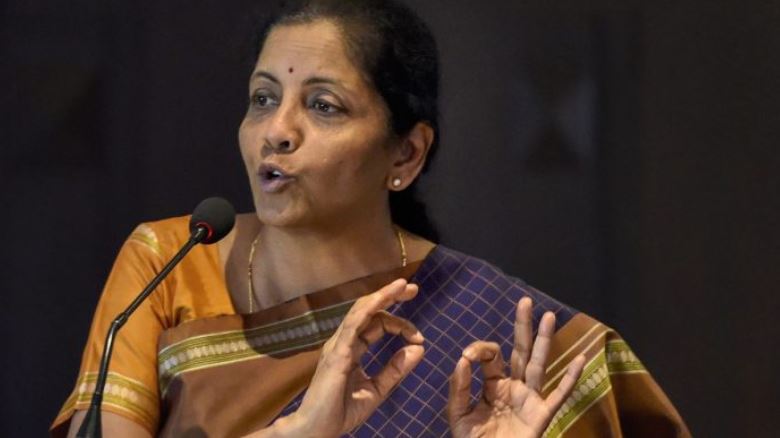
If CAA is against Muslims, how did Adnan Sami get citizenship: FM

At a time when the central government is encountering mass resistance against the Citizenship (Amendment) Act, which seeks to provide citizenship on the basis of religion, Finance Minister Nirmala Sitharaman on Sunday (January 19) said that as many as 2,838 Pakistani, 914 Afghan and 172 Bangladeshi refugees including Muslims have been given Indian citizenship in the past six years.
She said if the Centre had discriminated refugees on the basis of religion, it wouldn’t have given citizenship to Pakistani singer Adnan Sami and controversial Bangladeshi writer Tasleema Nasreen.
“In the last six years, as many as 2,838 Pakistani refugees, 914 Afghan refugees, 172 Bangladeshi refugees including Muslims have been given Indian citizenship. From 1964 to 2008, more than 4 lakh Tamils (from Sri Lanka) have been given Indian citizenship,” Sitharaman said at an event on CAA in Chennai.
While the major contention of anti-CAA protesters have been the sheer exclusion of Muslim migrants from the three countries from the amended act, Sitharaman said the assumption was wrong.
Also read: CAA not necessary, don’t understand why India did it, says Bangladesh PM
“Till 2014, over 566 Muslims from Pakistan, Bangladesh and Afghanistan were given Indian citizenship. During 2016-2018 under Modi government, around 1,595 Pakistani migrants and 391 Afghan Muslims were given Indian citizenship,” she was quoted as saying.
She said it was during this phase (2016-18) that Pakistani singer Adnan Sami and controversial writer Tasleema Nasreen were given Indian citizenship.
She said the Centre’s intention behind the implementation of CAA, was not to snatch away anyone’s citizenship, but to better the condition of persecuted refugees from other countries.
Giving the example of people from East Pakistan who have settled in refugee camps across the country, she said, “They are still there and it’s been 50-60 years now. If you visit these camps, your heart will cry. The situation is the same with Sri Lankan refugees who continue to live in camps. They’re barred from getting basic facilities.”
With Kerala and Punjab passing resolution in their respect assemblies against the contentious act, Sitharaman said states can pass such resolutions, but they do not have the power to decide whether the new law will be implemented as it would be “unconstitutional”.
She asserted that it was the responsibility of every state to ensure that the law passed by Parliament is implemented.
Also read: Video shows police confiscating blankets of protesters in Lucknow
“A state assembly has passed a resolution against CAA. It is like making a political statement. We can understand that. They can go ahead and we will not say no to that. But saying they will not implement it, then it is against the law. It is unconstitutional to say that,” she said.
The contentious CAA seeks to provide Indian citizenship to persecuted non-Muslim minorities from Pakistan, Bangladesh and Afghanistan who have entered India by December 31, 2014.
(With inputs from agencies)


